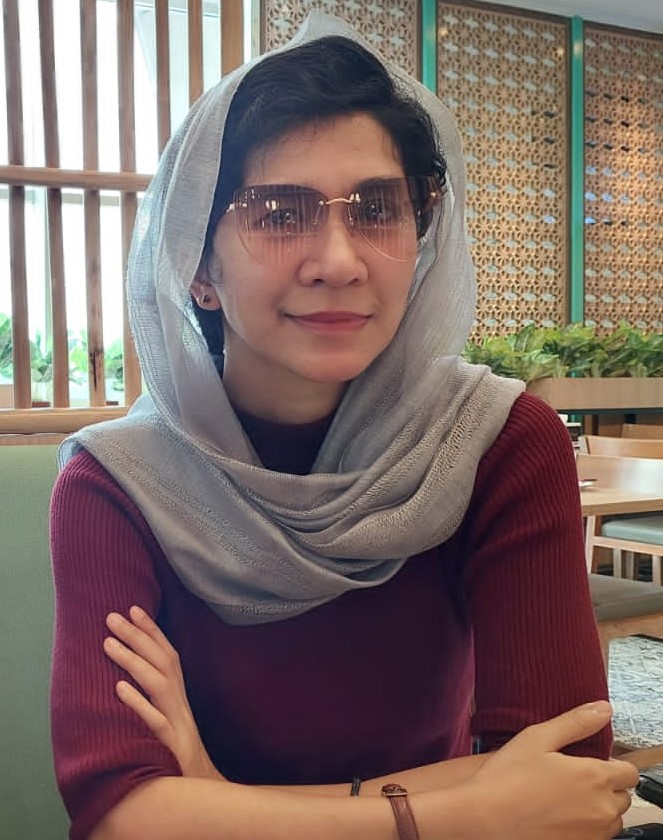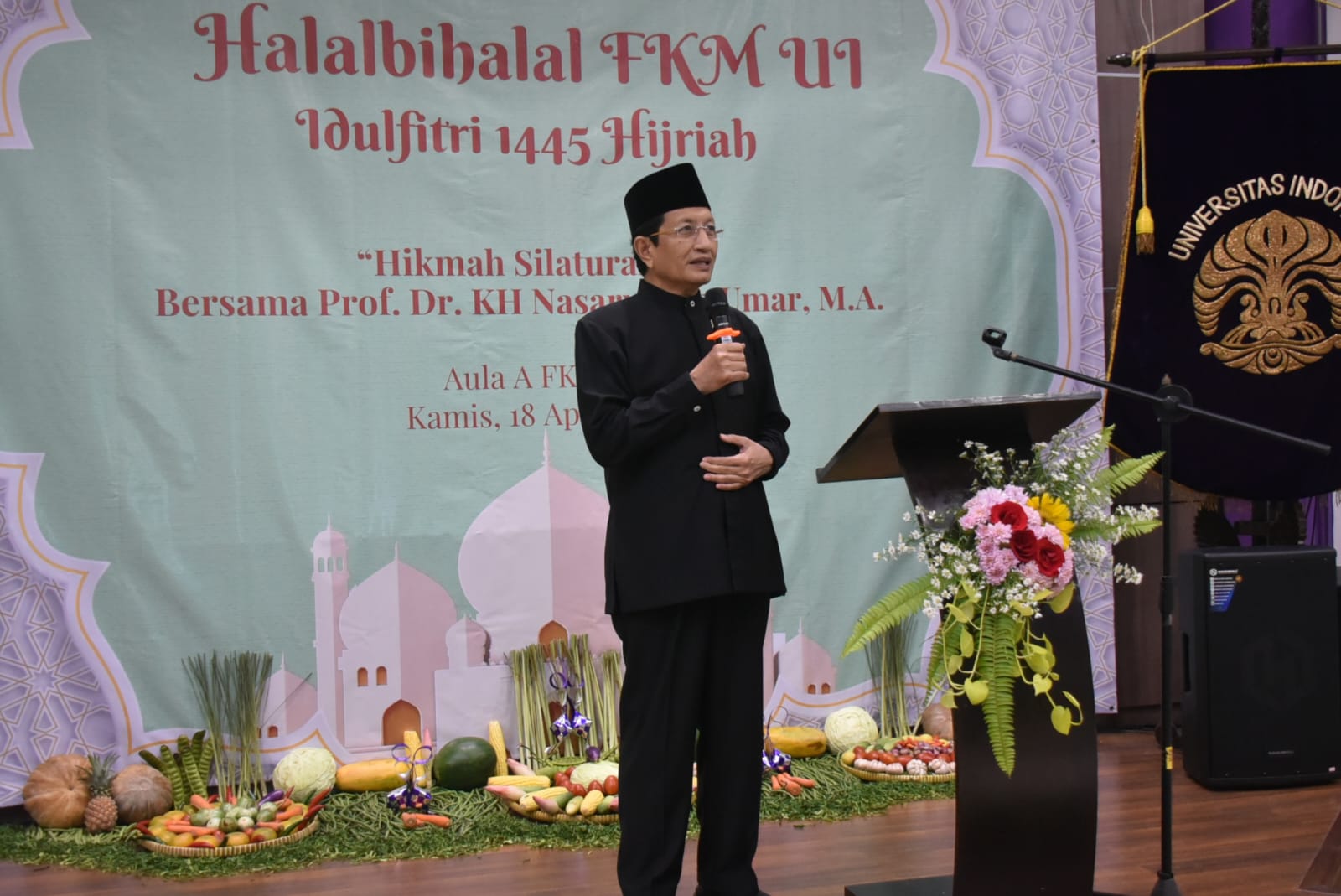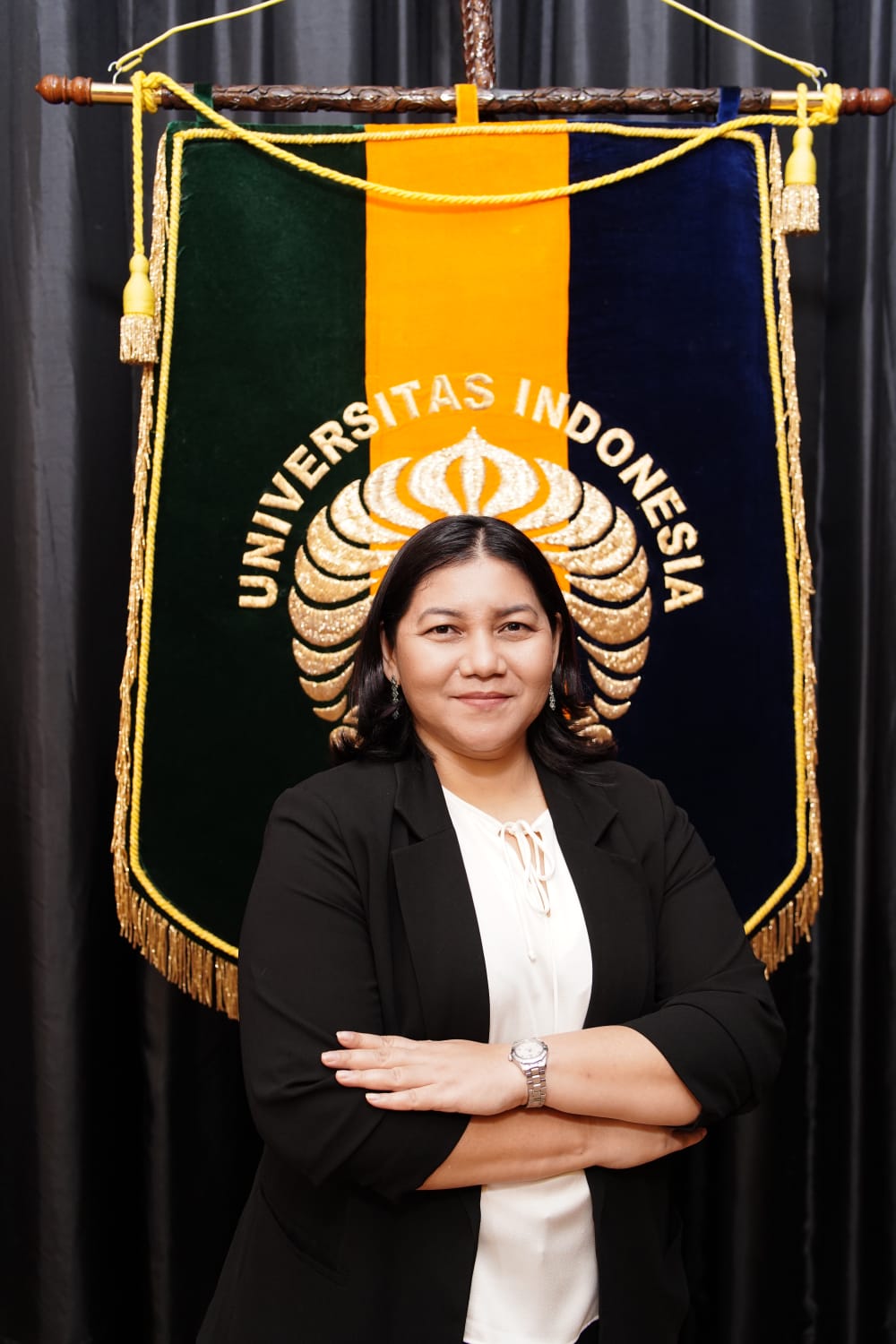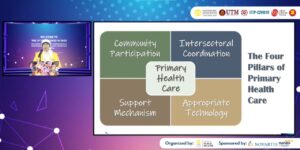
Strengthening primary health services to support the development of Micro, Small and Medium Enterprises (MSMEs) needs to be done, especially after the world was hit by the Covid-19 pandemic in the last two years. According to the Secretary of UI, dr. Agustin Kusumayati, M.Sc., Ph.D., based on the experience of handling the Covid-19 pandemic, many countries have failed to reduce the number of positive cases of Covid-19 because they are too focused on identifying new cases and ignoring prevention strategies. Therefore, it is important to implement the strategy in accordance with current conditions.
In dealing with the Covid-19 pandemic, there is a prevention strategy called the five-level prevention strategy. The five levels are health promotion by popularizing healthy lifestyles; special protection for disease prevention; early diagnosis and immediate treatment of disease; limiting disability; and rehabilitation. Of the five levels of prevention, the first three levels are primary health care functions, which are health services with a high level of accessibility for the community, both in terms of distance and cost.
Based on the results of the Alma Ata Declaration in 1978, there are eight main components of primary health care, namely health education; proper food supply and nutrition; basic sanitation and adequate clean water supply; maternal and child health; immunization; prevention and control of endemic diseases; management of infectious diseases; and provision of essential medicines. These components must still be considered in post-Covid-19 economic recovery efforts so that health problems can be controlled.
Building good primary health care requires the support and collaboration of various parties, including the government; universities and academia to help develop services; industry and the private sector; communities and society; mass media and social media to disseminate information. This collaboration can focus on community participation, cross-sector coordination, support mechanisms, and appropriate technology.
In the post-Covid-19 recovery, MSMEs play an important role as economic drivers because they stimulate economic growth at the local scale and distribute money circulation to the surrounding community. Through MSMEs, communities affected by the pandemic can be re-empowered. However, the implementation of MSMEs is often faced with health and safety issues, such as infectious diseases (Tuberculosis to Covid-19); work accidents; toxic exposure; ergonomic injuries; and workplace violence. Primary health care is one of the solutions for MSMEs to overcome these problems.

“We need a penta-helix collaboration to ensure primary health care and adequate safety and health measures in every MSME. Furthermore, MSMEs can develop their business by providing better products and services. This step is taken to improve the economy and reduce poverty in the area,” said dr. Augustine.
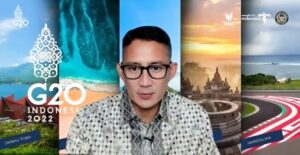
According to the Minister of Tourism and Creative Economy of the Republic of Indonesia, Dr. H. Sandiaga Salahuddin Uno, BBA., MBA., the government continues to collaborate and promote tourism and MSMEs in Indonesia so that they continue to grow in the midst of the pandemic. This is important because tourism and MSMEs have a big role in Indonesia’s economic growth. Various policies and programs have been and will continue to be developed to encourage MSMEs to enter the supply chain by increasing product value and selling power.
One of the efforts made by the Ministry of Tourism and Creative Economy is to prioritize digital transformation for MSMEs. To increase selling power, MSMEs can use planogram installations. Planogram is a display of MSME products that is innovated by adding a QR code so that it is directly connected to the online marketplace to make online purchase transactions.
“The digital transition can increase sales even more. Based on the data obtained, there was an increase in sales of 79.4% by utilizing online sales. This recovery moment can be a trigger for tourism and the economy to develop to be more inclusive and sustainable,” said Dr. Sandi.
Senior Program Manager, Tourism and Hospitality Management RMIT University, Vietnam, Dr. Jackie Lei Tin Ong, also shared strategies to achieve sustainable tourism. The strategy starts by continuously updating awareness related to tourism development; developing infrastructure that forms a smart tourism ecosystem; applying technology and science to support tourism digitalization; and improving tourism management to increase effectiveness and efficiency.
In addition, to develop and promote tourism businesses, policies are needed that support public-private partnership cooperation; and the development of tourism human resources. The creation of quality, diverse, and high value-added tourism products can also be done by highlighting the advantages of the natural resources of each region and locality, according to the needs of tourists. In order for tourism destinations to be recognized, the application of science and technology can also be utilized, namely through tourism digitalization.
The webinar, which was held on Monday (8/8), was part of The 2nd International Teleconference on Technology and Policy in Supporting Implementation of Covid-19 Recovery Plan in Southeast Asia (The 2nd ITTP-Covid19). This activity was organized by the Faculty of Public Health, Universitas Indonesia (FPH UI) in collaboration with 21 universities in Southeast Asia. This forum is intended for various communities in ASEAN to synergize strategies in post-Covid19 recovery efforts. The event, which was supported by the ASEAN secretariat and the ASEAN University Network (AUN), was held online through Zoom and Youtube FPH UI.

